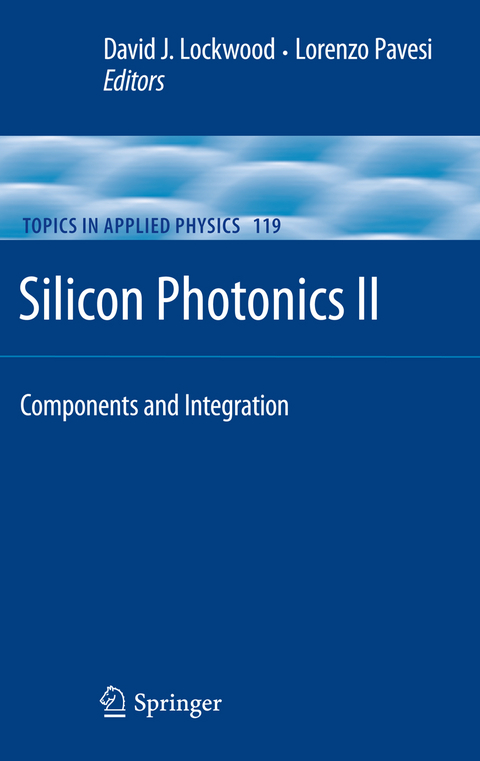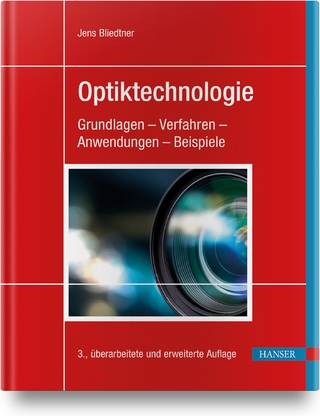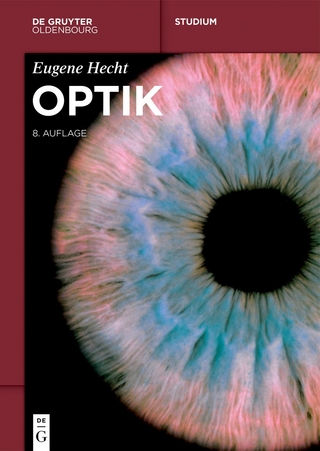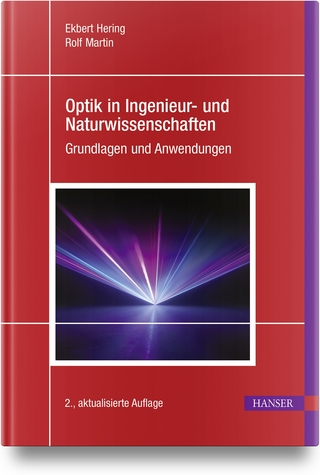
Silicon Photonics II
Springer Berlin (Verlag)
978-3-642-26553-2 (ISBN)
This book is volume II of a series of books on silicon photonics. It gives a fascinating picture of the state-of-the-art in silicon photonics from a component perspective. It presents a perspective on what can be expected in the near future. It is formed from a selected number of reviews authored by world leaders in the field, and is written from both academic and industrial viewpoints. An in-depth discussion of the route towards fully integrated silicon photonics is presented. This book will be useful not only to physicists, chemists, materials scientists, and engineers but also to graduate students who are interested in the fields of micro- and nanophotonics and optoelectronics.
David J. Lockwood earned BSc (1964), MSc (1966), and PhD (1969) degrees in physics at the University of Canterbury and was awarded a DSc in 2000. His doctoral research work was on inelastic light (Raman) scattering from insulators under Professor Alister G. McLellan. He spent 1970-71 as a post-doctoral fellow in physical chemistry with Professor Donald E. Irish at the University of Waterloo working on the vibrational spectroscopy of solvated cations. Dr. Lockwood then moved to Edinburgh University as a research fellow in the group of Professor William Cochran and spent six years there researching the dynamical properties of structural phase transitions and antiferromagnets. As a result of these studies he was awarded a DSc (1978) degree in physics by Edinburgh University. In 1978, Dr. Lockwood joined the Division of Physics of the National Research Council (NRC) of Canada, where he is now a Principal Research Officer in the Institute for Microstructural Sciences. At NRC, Dr. Lockwood continued his investigations of the electronic and magnetic excitations of antiferromagnets culminating in the classic book on light scattering in magnetic solids co-authored with Professor Michael G. Cottam. Since the mid-1980s he has researched the optical properties of semiconductor heterostructures, superlattices, and more recently, nanostructures. His seminal work on silicon nanostructures resulted in the definitive and widely cited observation of quantum-confined light emission in silicon and also of self-organized growth in superlattice structures. Dr. Lockwood has now published over 550 papers and 22 books on these topics and holds 7 patents. Dr. Lockwood has been extremely active in the promotion of science internationally through his service in recent years on more than 40 international and national committees including work within NATO, IUPAP, and the American Physical Society, where he was chair of the Forum on International Physics. He is an Editor of Solid State Communications and a member of the Editorial Boards of Physica E, Low Temperature Physics, The Open Condensed Matter Physics Journal, and Physics in Canada and is also Founding Editor for the Book Series on Nanostructure Science and Technology. Within the Electrochemical Society (ECS), he has co-organized or chaired a number of very successful international symposia on pits and pores, quantum confinement, and advanced luminescent materials and has served on the Board of Directors of ECS as well as chair of the Luminescence and Display Materials Division. He has served on the executive of the Canadian Association of Physicists as director of international affairs and also as treasurer, and of the Royal Society of Canada as treasurer. Dr. Lockwood is a Fellow of the Royal Society of Canada, the American Physical Society, and the Electrochemical Society, and is a member of the Materials Research Society, ASTM International, the Institute of Nanotechnology, and the Canadian Association of Physicists. In 2005 he was awarded the Brockhouse Medal of the Canadian Association of Physicists for outstanding achievement in condensed matter and materials physics and the Tory Medal of the Royal Society of Canada for outstanding research in any branch of astronomy, chemistry, mathematics, physics, or an allied science.
Preface.- Silicon wire waveguiding system: Fundamental characteristics and applications.- Polarization issues in silicon waveguide components and their control using cladding stress.- Photonics and electronics integration.- Germanium-on-silicon light emitters.- Grating couplers and polarization diversity in silicon photonics.- Erbium-doped nanocrystalline silicon for light amplification.- Efficient silicon MOSLEDs.- Germanium as a material to enable silicon photonics.- Ultralow power silicon microdisk modulators for on-chip otical interconnects.- Hybrid silicon photonic integrated circuits for optical networking.- Silicon photonics front-end integration in high-speed SiGe BiCMOS
| Erscheint lt. Verlag | 5.12.2012 |
|---|---|
| Reihe/Serie | Topics in Applied Physics |
| Zusatzinfo | XVI, 256 p. 194 illus., 67 illus. in color. |
| Verlagsort | Berlin |
| Sprache | englisch |
| Maße | 155 x 235 mm |
| Gewicht | 416 g |
| Themenwelt | Naturwissenschaften ► Physik / Astronomie ► Optik |
| Technik ► Elektrotechnik / Energietechnik | |
| Technik ► Maschinenbau | |
| Schlagworte | Integrated silicon optics • Optical interconnects on silicon basis • Optoelectronics of silicon • Silicon Photonics |
| ISBN-10 | 3-642-26553-7 / 3642265537 |
| ISBN-13 | 978-3-642-26553-2 / 9783642265532 |
| Zustand | Neuware |
| Informationen gemäß Produktsicherheitsverordnung (GPSR) | |
| Haben Sie eine Frage zum Produkt? |
aus dem Bereich


